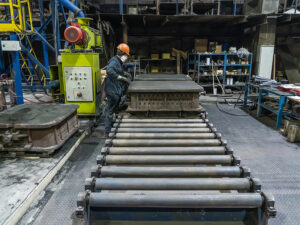How Construction Business Owners Can Prepare for an IRS Audit
Kirsch CPA Group
May 10, 2023

The IRS has historically considered construction a high-risk compliance industry because of its potential for cash transactions, underreported income and worker misclassification. What’s more, as the tax agency rolls into the future under new leadership, with improved technology and a boosted workforce, many business pundits are keeping an eye out for a rise in audit activity later this year or next.
Being selected for an IRS audit can be stressful. However, if it happens, managing your construction company’s tax and financial documentation carefully will help smooth the audit process and could minimize the risk of penalties or fines. Let’s look at how construction business owners can stay prepared for an audit and respond appropriately if one comes to pass.
Common Audit Triggers
There are many reasons why construction companies are selected for IRS audits, from random selection as part of the agency’s ongoing efforts to ensure tax compliance to inconsistencies found in tax returns. The following are considered red flags or common audit triggers by the IRS:
- Large deductions or substantial reported losses,
- Questionable or unusual transactions, such as large cash deposits or payments to related parties,
- Employees misclassified as independent contractors,
- Tax returns that don’t match information provided by third-party sources, such as clients or vendors, and
- Filings that include transactions with another tax-paying entity that’s been audited.
Also, if your construction business has been previously audited, the IRS may conduct a follow-up audit to ensure the issues have been resolved.
Proactive Measures
Don’t wait for an audit to get your ducks in a row! To minimize the likelihood of an audit, be sure to have sound processes in place for maintaining complete and accurate tax and financial records.
Make sure all records are organized and easily accessible — examples include invoices, receipts, contracts, bank statements and financial statements. Other documents to maintain include timecards, change order documentation and records of transactions involving withdrawals of materials from your inventory.
Having well-kept, accurate records will ease much of the pressure of an audit because you won’t have to run around frantically pulling together documentation. You’ll likely be required to present certain documents that support the income, credits and deductions claimed on your return. Organize them by year and type of income or expense, and maintain a summary of transactions.
The length of time you should keep a document depends on the action, expense or event that the item records. You must keep tax documentation as long as necessary to prove the income or deductions on a tax return. This typically means between three to seven years, depending on the document. Keep records of payroll and employment taxes for at least four years.
It’s Happening … Now What?
If your construction business does receive that much-feared letter in the mail, don’t panic. First, contact us so we can take you through the audit process. The scope and specifics of what the IRS is looking for can vary depending on the type of audit. The initial audit notice should tell you, but you might have some questions.
Remember, the IRS always initiates audits by mail — never by phone, email or text. Audits are then conducted through the mail or in person.
Once an audit is underway, maintain good communication with the auditor. Make sure you and your team are readily available to answer questions. If the auditor asks for additional documentation or information, fulfill the request promptly. Timely responses can help prevent delays, which drag out the audit process, and potential penalties.
Naturally, you should also be honest and transparent during the audit process. If there are any errors or issues with your construction company’s tax or financial records, it’s best to address them up front and work with the auditor to resolve them.
Industry Expertise
Perhaps the most important thing you can do to both stand ready for an audit and respond to one if it occurs is to have a skilled, professional tax advisor with industry experience on your side. Kirsch CPA Group is happy to fill that role for your construction business.
We can help you tackle business challenges like these – schedule an appointment today.
© Copyright 2023. All rights reserved.
More Resources

About The Author
Kirsch CPA Group is a full service CPA and business advisory firm helping businesses and organizations with accounting,…
Sign Up for Email Updates
Tags
Accounting & Financial News

6 Year-End Small Business Tax Saving Tips
There's still time for small businesses and their owners to implement strategies to save taxes for 2025.…

Manufacturers: Act Now To Claim the Sec. 179D Deduction for Energy-Efficient Building Improvements
The One Big Beautiful Bill Act (OBBBA) repeals or reduces many clean energy tax incentives, including the…



